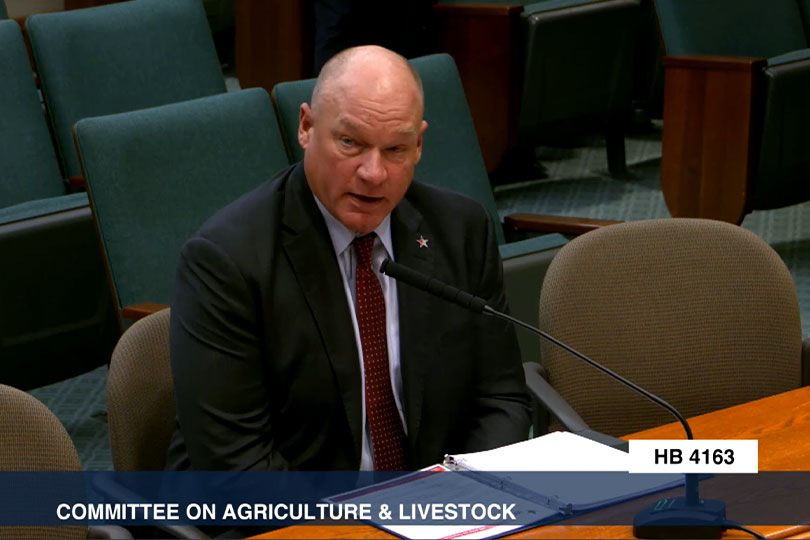By Shelby Shank
Field Editor
Despite the overwhelming passage in 2023 of Proposition 1, which protects farmers and ranchers from unnecessary municipal regulations, some cities continue to impose restrictive rules.
Texas Farm Bureau (TFB) Secretary-Treasurer and District 12 State Director Brian Adamek, a row crop farmer in Victoria County, testified in support of HB 4163 before the House Committee on Agriculture & Livestock.
The bill adds to the current Texas Right to Farm statute that provides protections for agricultural operations against certain city regulations.
“Currently, cities in Texas are requiring property owners to maintain the rights-of-way that are adjacent to public roads. While that is not much of a burden in a residential subdivision with 50- or 60-foot lots, it is a substantial burden on farmers and ranchers,” he said.
For farmers and ranchers like Adamek, whose land spans significant acreage, maintaining these public rights-of-way means firing up their personal heavy equipment.
“That equipment and those machines require a lot of fuel that comes at a significant cost to farmers and ranchers,” Adamek said. “Not only is the maintenance of these rights-of-way expensive, it’s time consuming.”
Adamek also believes the current practice forces landowners to use private property for a public purpose without compensation. To him, that’s a violation of the Takings Clause of the U.S. Constitution.
“That would mean having to go to court to challenge the city,” he said.
Unlike homeowners in a subdivision, farmers and ranchers are prohibited from using city-controlled right-of-way land but are still required to maintain it.
HB 4163, authored by Rep. Ryan Guillen, aims to fix that imbalance.
The bill would amend the Texas Right to Farm statue by prohibiting cities from requiring farmers and ranchers to maintain vegetation in rights-of-way along public roads adjacent to their land. Farmers and ranchers are not able to use the property in the city right-of-way, so they should not be forced to maintain it at their own cost, Texas Farm Bureau said.
This legislation will prevent cities from imposing governmental requirements that could negatively impact farming and ranching activities.
The bill was left pending in committee following the hearing.
For more information on Texas Farm Bureau’s legislative priorities, visit texasfarmbureau.org/advocacy.


Leave A Comment